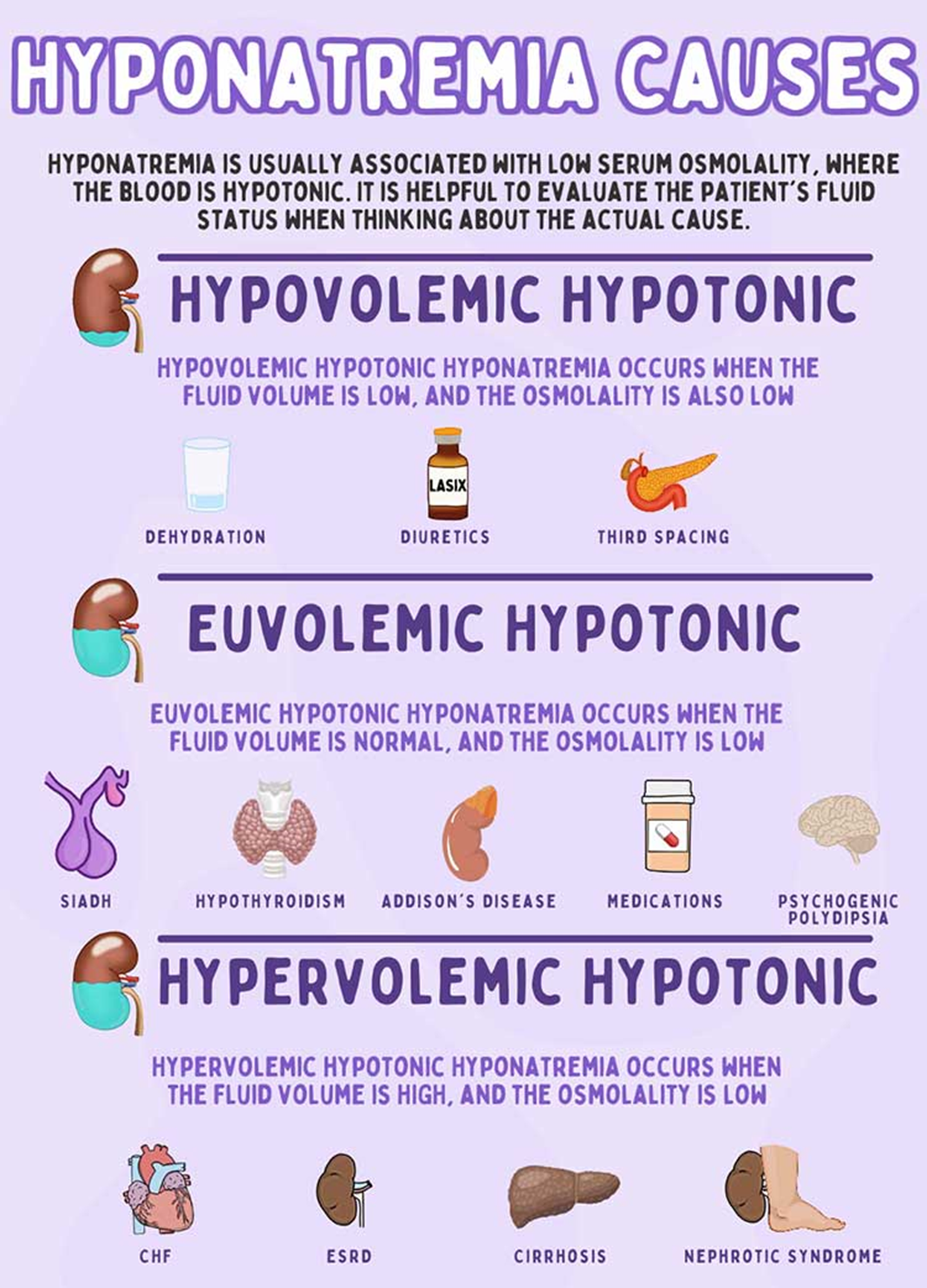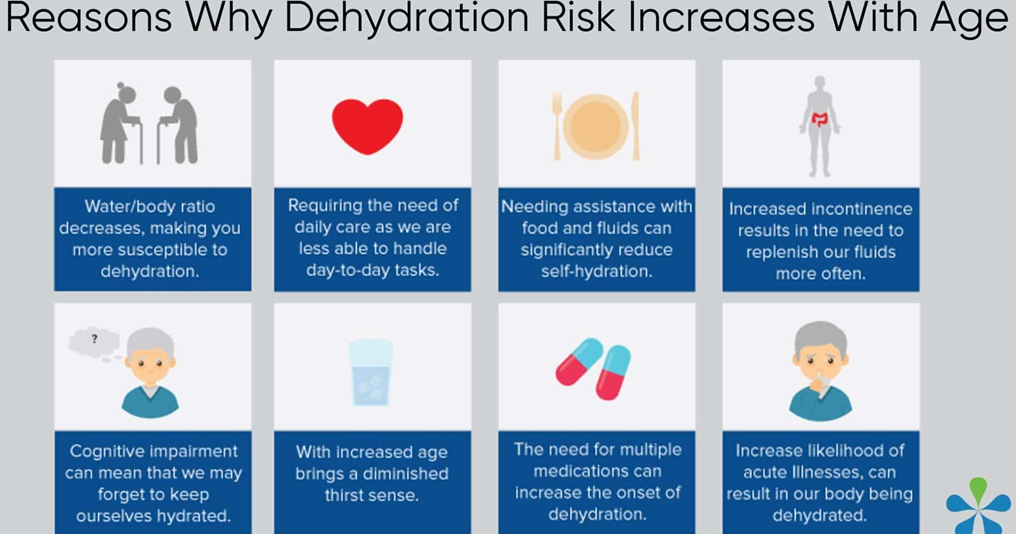A nurse is collecting data from a patient who has dehydration. Which of the following findings should the nurse expect?
Moist skin
Dark-colored urine
High blood pressure
Distended neck veins
The Correct Answer is B
Choice A reason: Moist skin is not a sign of dehydration, but rather a sign of adequate hydration or sweating. Dehydration can cause dry skin, mucous membranes, and lips.
Choice B reason: Dark-colored urine is a sign of dehydration, as it indicates a high concentration of waste products and a low volume of water in the urine. Dehydration can cause the kidneys to conserve water and produce less urine.
Choice C reason: High blood pressure is not a sign of dehydration, but rather a sign of fluid overload or other factors such as stress, pain, or medication. Dehydration can cause low blood pressure, as it reduces the blood volume and the cardiac output.
Choice D reason: Distended neck veins are not a sign of dehydration, but rather a sign of fluid overload or right-sided heart failure. Dehydration can cause flat neck veins, as it reduces the venous return and the central venous pressure.
Nursing Test Bank
Naxlex Comprehensive Predictor Exams
Related Questions
Correct Answer is D
Explanation
Choice A reason: Stroke is not a cause of hyponatremia, but rather a possible complication of it. Hyponatremia is a condition where the sodium level in the blood is too low, which can affect the brain function and cause symptoms such as confusion, seizures, or coma. Stroke is a condition where the blood supply to a part of the brain is interrupted, which can cause brain damage and neurological deficits.
Choice B reason: Dehydration is not a cause of hyponatremia, but rather a cause of hypernatremia. Dehydration is a condition where the body loses more fluids than it takes in, which can affect the blood volume and the electrolyte balance. Dehydration can cause hypernatremia, which is a condition where the sodium level in the blood is too high, which can also affect the brain function and cause symptoms such as thirst, dry mouth, or lethargy.
Choice C reason: Increased secretion of aldosterone is not a cause of hyponatremia, but rather a cause of hypokalemia. Aldosterone is a hormone that regulates the sodium and potassium levels in the body by increasing the reabsorption of sodium and the excretion of potassium in the kidneys. Increased secretion of aldosterone can cause hypokalemia, which is a condition where the potassium level in the blood is too low, which can affect the muscle and nerve function and cause symptoms such as weakness, cramps, or arrhythmias.
Choice D reason: Congestive heart failure (CHF) is a cause of hyponatremia, as it is a condition where the heart is unable to pump enough blood to meet the body's needs. This can lead to fluid retention and edema, which can dilute the sodium level in the blood and cause hyponatremia. CHF can also stimulate the release of antidiuretic hormone (ADH), which increases the reabsorption of water in the kidneys and further lowers the sodium level in the blood.

Correct Answer is A
Explanation
Choice A: Elderly patients are at a higher risk for dehydration due to physiological changes that come with aging, such as decreased kidney function and physical changes to the body's water balance systems. Additionally, fever increases metabolic rate and fluid loss, and nausea and vomiting prevent adequate fluid intake, further increasing the risk of dehydration.
Choice B: While intentionally limiting fluid intake can lead to dehydration, the body's thirst mechanism in a healthy teenager is typically strong enough to prevent severe dehydration.
Choice C: Diarrhea can certainly lead to dehydration, but a young, otherwise healthy patient typically has a stronger ability to recover from fluid loss than an elderly patient.
Choice D: Infants are at a higher risk for dehydration than older children and adults due to their smaller body weight and higher turnover of water and electrolytes, but in this case, the elderly patient's multiple risk factors put them at a higher risk overall.

Whether you are a student looking to ace your exams or a practicing nurse seeking to enhance your expertise , our nursing education contents will empower you with the confidence and competence to make a difference in the lives of patients and become a respected leader in the healthcare field.
Visit Naxlex, invest in your future and unlock endless possibilities with our unparalleled nursing education contents today
Report Wrong Answer on the Current Question
Do you disagree with the answer? If yes, what is your expected answer? Explain.
Kindly be descriptive with the issue you are facing.
